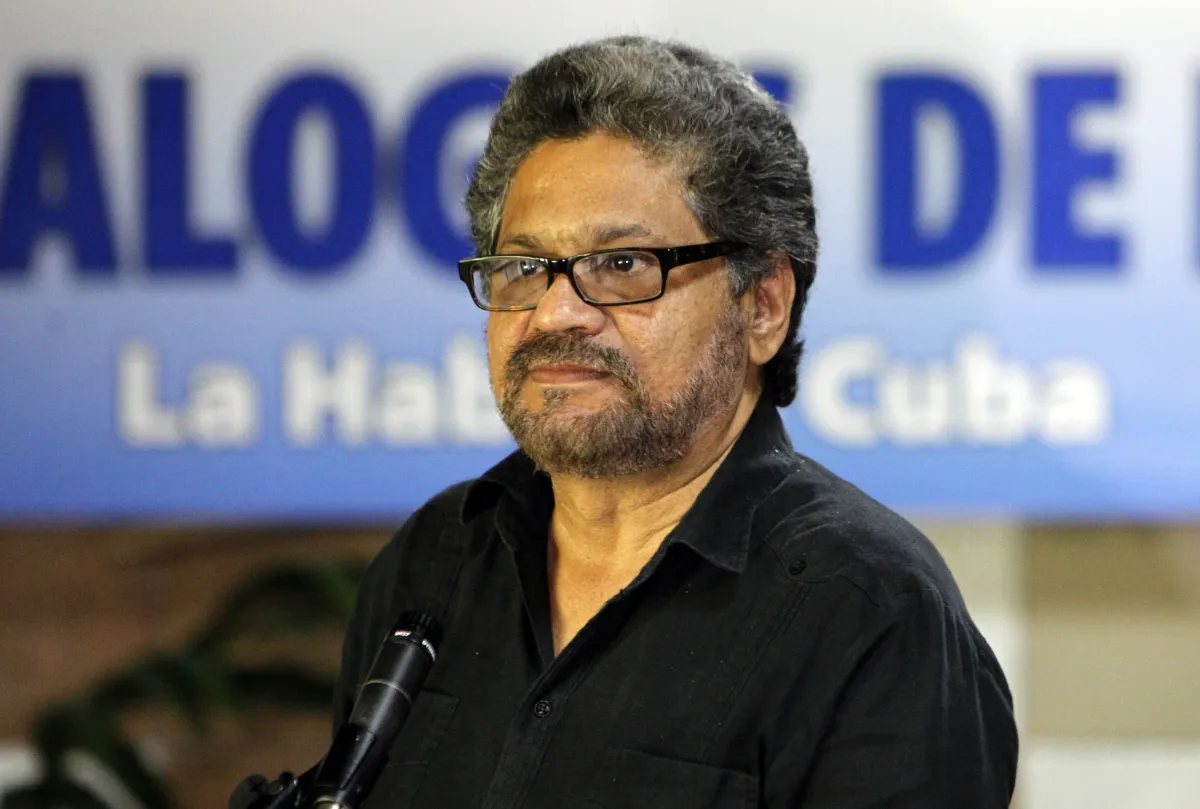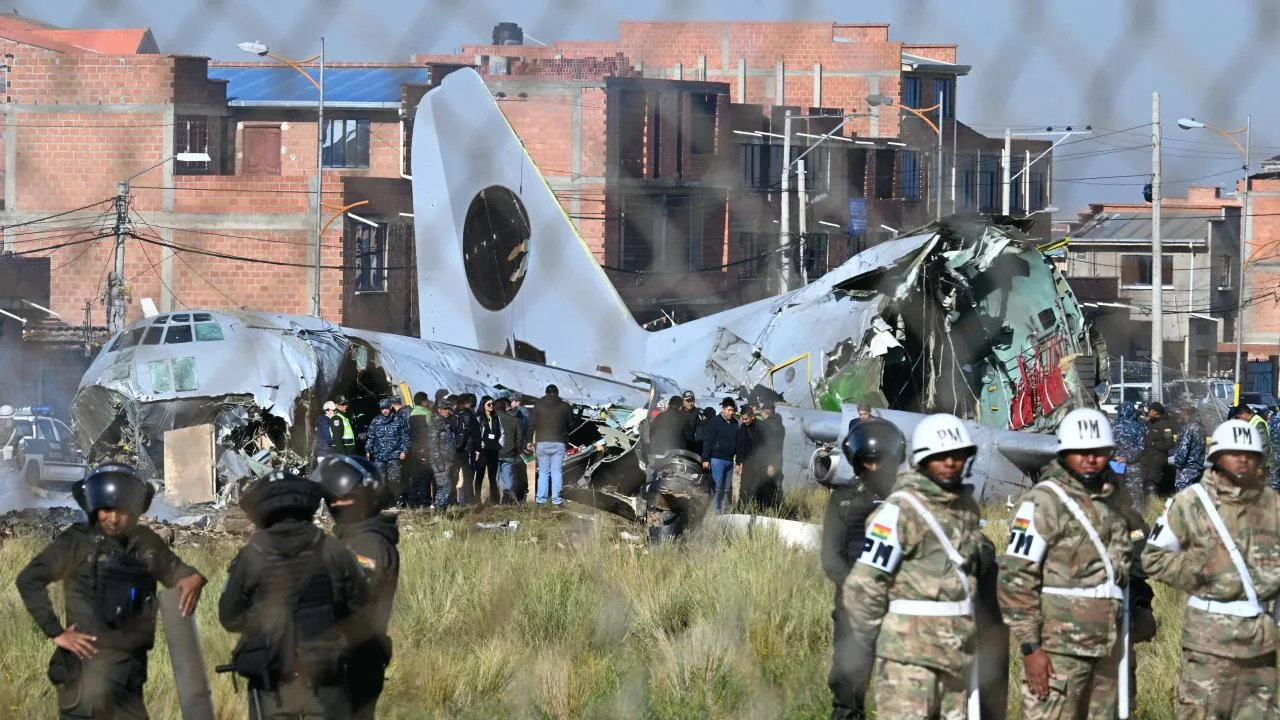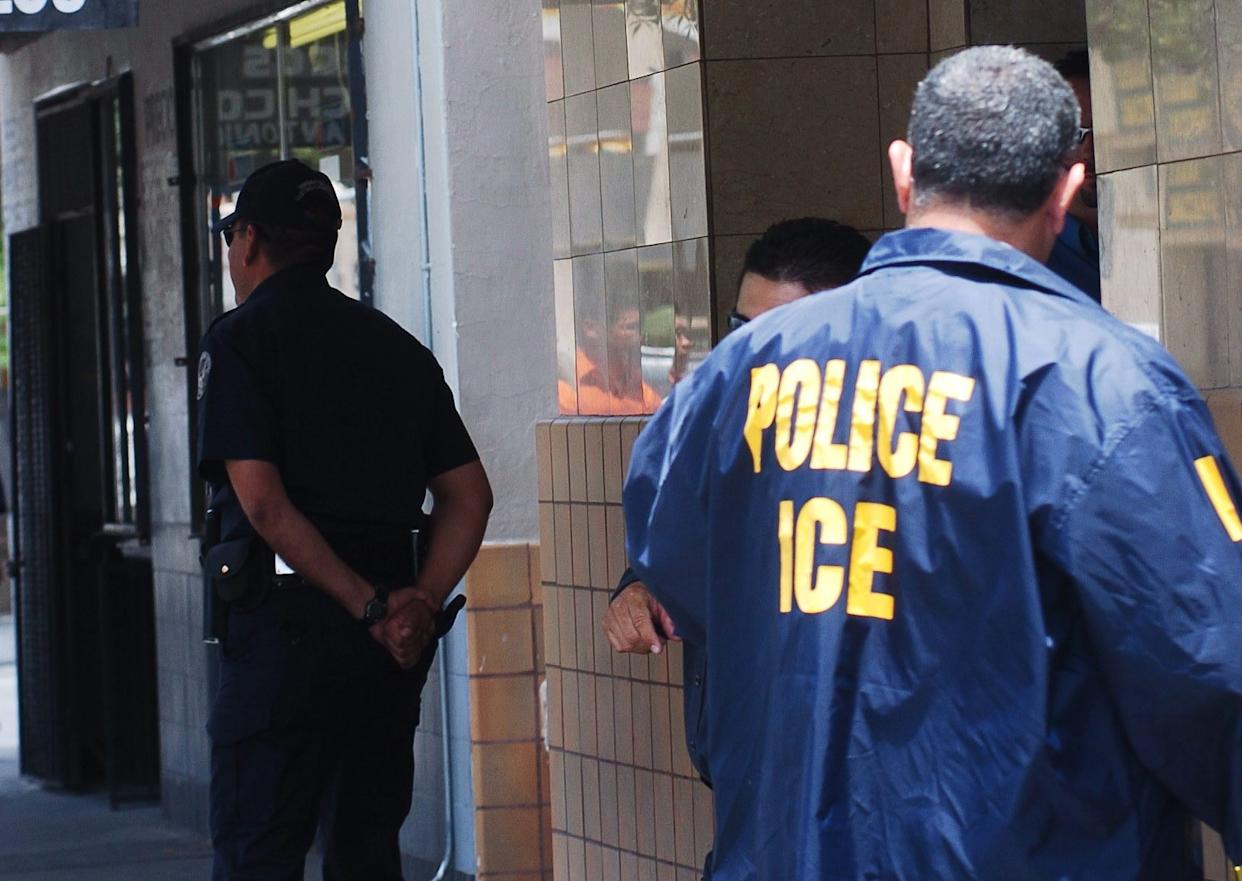International
The FARC dissident ‘Iván Márquez’ reappears in a video after being presumed dead

The FARC dissident ‘Iván Márquez’, leader of the Second Marquetalia and who was the chief peace negotiator of the former guerrilla, reappeared in a video after being presumed dead in an attack in Venezuela in July 2022.
In the video ‘Márquez’, reappeared for the first time in an audio and whose survival was confirmed by several authorities, he spoke about different issues of conjuncture such as the proposal of the Constituent Assembly of President Gustavo Petro.
Precisely what shows that the video is recent are the statements he made regarding Petro’s initiative, presented last March during a government act in Cali, the main city in southwestern Colombia, given the difficulty he has in getting Congress to approve its reforms, where his support has diminished.
“On March 15, President Petro (…) spoke of opening a constituent process in Colombia. Let’s go for the all or nothing, no more decades and centuries of deception and oppression,” added ‘Márquez’.
The video published during the ´ Vichada Binational Forum: Territory of Peace, Life and Biodiversity´, held in the municipality of Puerto Carreño, capital of the department of Vichada (border with Venezuela).
During the event, in which national, regional and local authorities participated, as well as representatives of the public forces, the attendees saw the 17 minutes of the intervention of the head of the Second Marquetalia.
In August 2019, almost three years after signing the peace ‘Iván Márquez’, who was also number two of the FARC, announced that he was taking up arms at the head of a dissidence called Second Marquetalia, in reference to the birthplace of the FARC more than half a century ago, for alleged non-compliance by the Government.
In 2022, his alleged death was reported in an attack perpetrated by another armed group with which the Second Marquetalia was disputing the Colombian-Venezuelan border, where the groups are hidden, and the illicit businesses that circulate there.
However, that dissidence attributed the attack to the Colombian security forces and denied the death, and in September 2022 the Colombian Government confirmed that ‘Márquez’ was alive, but “sick, convalescent.”
Then the ‘Márquez’ himself reappeared in an audio on August 2, 2023 in a speech ahead of the first year of the president’s government, in which he claimed that he was alive.
In October 2023, the then High Commissioner of Peace, Danilo Rueda, confirmed that ‘Márquez’ “is in Colombia” and his state of health is good.
Luciano Marín Arango, 68 years old, was born on June 16, 1955 in Florence, capital of the southern department of Caquetá, and his history indicates that in the early 1980s he was linked to the 14 Front of the FARC, where he climbed positions until he became part of the guerrilla leadership.
At the beginning of February, the Colombian Government and the Second Marquetalia announced the start of a peace process, which will be the third to be undertaken by the current Executive, after those installed with the National Liberation Army (ELN) and the Central General Staff (EMC), the main group of dissidents of the FARC.
The statement, signed on February 1, also points out that the Second Marquetalia undertakes not to kidnap civilians, although there is still no date or more details about the start of the dialogues with the dissent led by ‘Márquez’.
International
Bolivia Orders Three Investigations Into Deadly Military Plane Crash

Bolivia’s Defense Minister Marcelo Salinas announced Monday that three separate investigations will be conducted into Friday’s crash of a military cargo aircraft at El Alto International Airport, near La Paz, which left at least 22 people dead.
The Hercules aircraft, operated by the Fuerza Aérea Boliviana (FAB), was transporting cash intended for the Central Bank of Bolivia when it overshot the runway after landing from the city of Santa Cruz. The plane reportedly traveled nearly one kilometer beyond the airport perimeter.
The incident sparked chaotic scenes, with individuals attempting to collect scattered banknotes. Authorities detained 51 people in the aftermath, and the government declared three days of national mourning.
Multiple Investigations Underway
The first inquiry is being led by a military board from the Bolivian Air Force, which has already taken custody of the aircraft’s black box for analysis.
Minister Salinas said two additional investigations will follow — one conducted by the insurance company and another by the aircraft’s manufacturer.
“At least two more investigations will come, that of the insurance company and that of the aircraft manufacturer,” Salinas said during a press conference in Santa Cruz.
He cautioned that the investigative process could take between three and six months, noting that the black box cannot be opened in Bolivia due to the lack of specialized laboratories for analysis.
Awaiting Official Findings
Salinas stressed that the FAB investigative board is the highest authority in the case and urged the public to wait for its conclusions to avoid speculation about the causes of the crash.
He also confirmed that the government has contacted the families of the 22 victims and the 37 injured, as well as the owners of 15 damaged vehicles, to coordinate procedures with the insurer and cover the corresponding expenses.
International
Mexico Calls for Immediate Probe After National Dies in ICE Custody

Mexico’s Secretaría de Relaciones Exteriores (SRE) on Monday called on U.S. authorities to conduct an “immediate and thorough” investigation into the death of a Mexican national while in custody of U.S. Immigration and Customs Enforcement (ICE) at a processing facility in California.
In a statement, the Mexican government described the death as “regrettable” and urged U.S. officials to clarify the circumstances surrounding the case in order to “determine responsibilities and ensure that such events do not happen again.”
Death at Adelanto Processing Center
According to available information, the Mexican citizen died at the Adelanto Processing Center in California while under ICE custody. Authorities have not yet released the individual’s identity or the cause of death.
Following the incident, Mexico’s Foreign Ministry formally requested “detailed information” from U.S. authorities, including the detainee’s medical records and custody reports.
Consular Assistance Activated
The Mexican Consulate in San Bernardino, California, has activated consular assistance protocols to provide ongoing support to the deceased’s family. Officials have contacted relatives to express condolences and offer legal guidance, as well as assistance with the necessary procedures to repatriate the remains.
“The handling of situations like this and the establishment of mechanisms to resolve them are priorities for the Government of Mexico,” the Foreign Ministry said, adding that it will formally request an investigation into any systemic conditions that may have contributed to such incidents.
Local Mexican media reported that seven Mexican nationals died while in ICE detention last year — the highest number recorded since the agency was created.
International
Anti-ICE Billboard Campaign Targets Immigration Spending in 31 U.S. Cities

More than 200 billboards criticizing U.S. Immigration and Customs Enforcement (ICE) began appearing Monday in 31 cities across the United States, including Miami, as part of a campaign highlighting the high cost of immigration enforcement operations for taxpayers.
The initiative, titled “ICE Costs Us,” was launched by the civil rights organization Mijente and will run for four weeks.
Criticism of Spending and Enforcement Tactics
The billboards feature images of ICE agents during arrests or carrying military-style weapons. According to the organization, spending on military-grade equipment for the agency has increased by 600 percent in recent years.
Several signs display messages such as:
“Your taxes are being wasted” and “ICE’s cruelty costs you $28 billion,” referring to the agency’s annual budget.
In a statement, Marisa Franco, co-founder of the Mijente Support Committee, said:
“For too long, our government has prioritized building cages and investing billions in an immigration enforcement apparatus that has left families torn apart and communities terrified.”
She added that “Millions of Americans are living paycheck to paycheck, yet this violent agency continues operating with a blank check. These decisions do not make us safer nor improve our economic security. Our billboards highlight these choices and demand a different path.”
Budget Debate and Medicaid Comparison
The campaign also draws a comparison between ICE’s funding and the estimated 17 million people who could lose health coverage under Medicaid due to federal budget cuts under President Donald Trump.
Other billboard messages seen in various cities include:
“They get billions to beat us; we get layoffs and rising rents” and “Funding ICE is a fast track to fascism.”
Organizers say the goal is to spark public debate about the allocation of federal funds for immigration enforcement and the broader economic and social impact of such policies on communities nationwide.
-

 International4 days ago
International4 days agoCocaine Production Surges 34% in 2023 as Market Expands into Africa and Asia
-

 International2 days ago
International2 days agoIran Reports 201 Dead, 747 Injured After U.S. and Israeli Strikes
-

 International3 days ago
International3 days agoTrump Floats “Friendly Takeover” of Cuba Amid Rising Tensions
-

 Sin categoría2 days ago
Sin categoría2 days agoTrump: ‘We Think It’s True’ Amid Claims Iran’s Supreme Leader Was Killed
-

 International2 days ago
International2 days agoSecurity Council to Hold Emergency Meeting on Middle East Crisis
-

 International4 days ago
International4 days agoFederal Judge Blocks Trump Policy Allowing Deportations to Third Countries
-

 International3 days ago
International3 days agoArgentina’s Senate Reviews Milei-Backed Labor Overhaul
-

 International2 days ago
International2 days agoPope Leo XIV Urges End to ‘Spiral of Violence’ in Middle East
-

 International7 hours ago
International7 hours agoBrazil’s Supreme Court Rejects Bolsonaro’s Bid for House Arrest
-

 International4 days ago
International4 days agoClinton Accuses Republican Committee of Using Epstein Case to Shield Trump
-

 International7 hours ago
International7 hours agoAnti-ICE Billboard Campaign Targets Immigration Spending in 31 U.S. Cities
-

 International7 hours ago
International7 hours agoTrump Warns of ‘Major Wave’ of Attacks as Iran Conflict Escalates
-

 International7 hours ago
International7 hours agoMexico Calls for Immediate Probe After National Dies in ICE Custody
-

 International7 hours ago
International7 hours agoBolivia Orders Three Investigations Into Deadly Military Plane Crash
-

 Central America7 hours ago
Central America7 hours agoPanama Canal Monitoring Trade as Middle East Conflict Disrupts Shipping




























